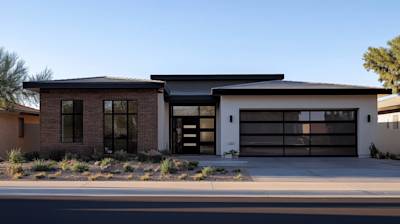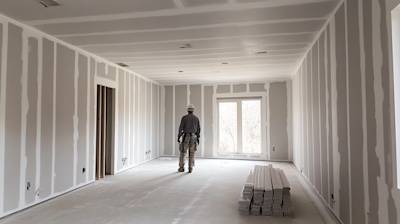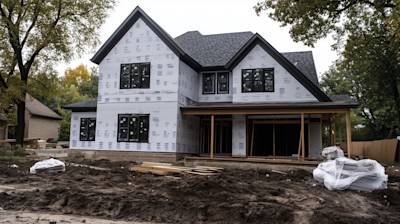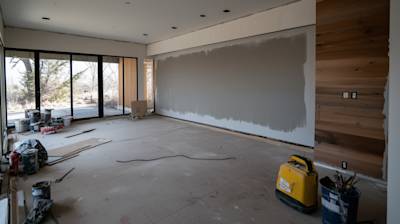Stucco sprayers offer a tremendous variety of advantages in both residential and industrial applications, becoming an increasingly popular tool in the construction and renovation industry. Understanding the ins and outs of this versatile tool, how to select the most suitable one for your needs, and its proper use can greatly assist in creating durable and aesthetically pleasing finishes in any project.
Understanding the Stucco Sprayer
A stucco sprayer is a specialized tool primarily used for applying stucco, plaster, mortar and more. It delivers a uniform spray of material, which significantly saves time and labor cost compared to traditional stucco application methods such as by hand or with a trowel. It creates a consistent finished product and controls material waste, hence contributing to overall project efficiency.
Different Types of Stucco Sprayers
Stucco sprayers come in a range of different types to meet diverse application demands. Here, we examine some of the most commonly used types:
- Air Stucco sprayers: These rely on pressurized air to spray stucco material, which can be controlled to attain varying texture finishes.
- Gravity-feed sprayers: These use gravity to feed stucco into the sprayer, making it an ideal option for smaller projects and quick applications.
- Pump sprayers: These are powered by electricity or gas and best suited for big projects. They can handle different materials from synthetic stucco to traditional mortar.
Selecting a Stucco Sprayer
Assess Your Project Needs
Your project's size and scope will significantly determine the stucco sprayer you need. For instance, smaller projects might only require a handheld gravity-fed model, while larger projects may require a more robust, power-operated sprayer.
Evaluate the Material Compatibility
Ensure your chosen stucco sprayer is designed to handle the type of material you plan to use. Not all sprayers are suitable for every type of stucco or plaster.
Consider the Sprayer's Features
Look for features that can make the application process easier, like adjustable nozzles for control over the material's flow and texture.
Successful Operation of a Stucco Sprayer
Maintenance is Key
Regular maintenance ensures your stucco sprayer remains in top condition for longer. You should clean it thoroughly after each use to prevent the buildup of dried stucco which could affect its operation.
Safety Measures
Always follow safety procedures while using a stucco sprayer. Wearing appropriate personal protective equipment, such as safety glasses, respirators, and gloves, is crucial.
A well-chosen and properly maintained stucco sprayer can make all the difference in your construction or renovation project. Whether you're a DIY enthusiast or a construction professional, understanding your needs, the material you'll use, and how to operate and maintain your sprayer will help you create beautiful, durable stucco structures with less effort and cost.
Frequently Asked Questions About Stucco Sprayers
What does a stucco sprayer do?
A stucco sprayer is a specialized tool used to apply stucco, a cement plaster material, onto surfaces. Using this sprayer greatly simplifies and accelerates the process of applying stucco onto walls or ceilings.
How does a stucco sprayer work?
A stucco sprayer works by projecting the stucco mixture from its nozzle with the help of pressurized air. The stucco is loaded into a hopper, pressurized using either a manual pump or electric motor, and then spray evenly onto your desired surface.
Are there different types of stucco sprayers?
Yes, there are different types of stucco sprayers available in the market based on their use and functionality. The three main types are hopper guns, roller sprayers, and mist sprayers. Each type has its unique features and use depending on the scale and nature of the project.
Is it easy to use a stucco sprayer?
Yes, using a stucco sprayer is relatively simple once you get the hang of it. It may take a bit of practice to achieve smooth and even coverage, but the user-friendly design and instructions make the learning process easier.
Can I use a stucco sprayer for other materials?
While stucco sprayers are primarily designed for stucco, many models are versatile enough to handle other materials like mortar, plaster, or even paint. However, it's always good to check the manufacturer guidance to ensure that using different materials won’t damage your tool.
How do I maintain a stucco sprayer?
Maintaining a stucco sprayer mostly involves cleaning it thoroughly after each use to prevent any stucco residue from hardening and clogging the system. Some models may also require regular oiling or other maintenance procedures as per the manufacturer's instructions.
Where can I buy a stucco sprayer?
Stucco sprayers can be purchased at hardware stores, home improvement outlets, or online platforms like Amazon and eBay. Remember to compare features and prices before making your purchase.
What factors should I consider when buying a stucco sprayer?
When buying a stucco sprayer, consider factors such as the type of projects you'll be working on (size, location, type of surface), the sprayer’s capacity, its ease of use, maintenance requirements, and of course, its price. Always go for a sprayer which suits your specific needs.
Are stucco sprayers cost-effective?
Yes, stucco sprayers are generally cost-effective for large projects or for professionals who frequently work with stucco. They can drastically reduce labor and time costs by speeding up the stucco application process.
Can I rent a stucco sprayer?
Yes, if you have a one-time project or don’t wish to invest in a stucco sprayer, many tool rental services offer the option of renting one out. Be sure to ask for a demonstration or instructions on how to use the sprayer if you're new to using this tool.
Pros and Cons of a Stucco Sprayer
Pro: Efficiency
Time-saving
- The most distinct advantage of a stucco sprayer is its capability to expedite the stucco application process. Traditional application methods can be time-consuming, whereas a stucco sprayer can considerably reduce the time needed and increase the output rate.
- Stucco sprayers can cover large surface areas in a significantly shorter amount of time compared to manually applying stucco.
Uniformity in application
- Stucco sprayers apply stucco evenly across a surface. This gives a much smoother and professional finish compared to the manual application which can leave inconsistent layers and rough surfaces.
- Consistency is key to the durability and aesthetic appeal of a stucco finish, and stucco sprayers offer just that.
Pro: Reduced labor
- Using stucco sprayers significantly diminishes the amount of labor needed since manual spreading and application is replaced by the automated sprayer.
- This is particularly beneficial in large-scale projects where manpower cost is a concern.
Pro: Versatility
- Stucco sprayers can handle a variety of mixtures and textures, making them perfect for a wide range of stucco projects.
- Different finishes can be achieved easily by merely adjusting the sprayer settings, thereby increasing the sprayer's flexibility and use cases.
Con: Cost
Initial Investment
- A significant disadvantage of stucco sprayers is the high initial cost. A quality stucco sprayer can be quite expensive, especially for individuals, contractors or companies just getting their footing in the industry.
Maintenance Expenses
- Stucco sprayers require regular maintenance to ensure they operate effectively and provide consistent results. This can increase the total working cost over time.
Con: Skill Requirements
- Operating a stucco sprayer requires a certain level of skill and experience. Therefore, for individuals or companies brand new to the industry, there may be a steep learning curve involved.
- Improper usage or mishandling can lead to serious damages to the sprayer or even the structure being worked on.
Con: Limited to Certain Stucco Types
- While the stucco sprayer is ideal for certain kinds of stucco application, its functionality is often limited when it comes to thicker or heavier stucco types. The sprayer might not be able to properly apply these, leading to inconsistent finishes.
Con: Cleanup and Maintenance
- Cleanup and maintenance can be quite demanding. Stucco sprayers need thorough and regular cleaning to prevent clogging or damaging the nozzle, compromising the longevity and performance of the sprayer.
- Additionally, poorly maintained sprayers might lead to inconsistent finishes or even malfunction in the long run.
Summary
Stucco sprayer has truly revolutionized how construction work is done. It's not just about speeding up the application process, but also about the consistency it brings to the job. No longer do we have to worry about uneven layers of stucco, as the sprayer ensures a smooth and even finish every time.
Not only handy for professionals, but the stucco sprayer has proven to be a fantastic tool for DIY enthusiasts as well. There's a certain satisfaction to doing a job yourself and seeing the results. Plus, the sprayer's easy usage means that virtually anyone can learn to use it effectively.
Overall, the stucco sprayer is a must-have for any construction toolkit. It's remarkable how such a simple tool can bring about so much efficiency and quality to stucco application. Whether it's for professional use or for a personal DIY project, one thing's for sure – the stucco sprayer is here to stay.
About Atlas Stucco
Welcome to Atlas Stucco! Based in beautiful Sacramento, CA, we pride ourselves in providing top-notch stucco work that'll make your property stand out. With our skilled team and commitment to quality, nothing short of excellence is what we promise. Whether it's a home or a business establishment, we always make sure to deliver exceptional results, in every corner and every crack. Get in touch with us today to turn your property into the talk-of-the-town!
Tags: stucco sprayer, stucco application, stucco tools,








